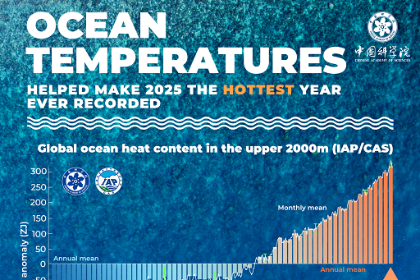Filling the leadership vacuums
Only by upholding the UN's authority in the international system and maximizing the role of its institutions can the global governance system be improved


On May 29, the United States announced that it would terminate its relationship with the World Health Organization. Not long ago, the US had withdrawn from international organizations such as the United Nations Educational, Scientific and Cultural Organization, the UN Human Rights Council and other international agreements such as the Paris Agreement on Climate Change, the Comprehensive Agreement on Nuclear Issues, the Intermediate-Range Nuclear Forces Treaty and the Open Skies Treaty.
Due to the withdrawal of the US, the world's sole superpower and largest economy, many international organizations at global level are facing leadership vacuum, insufficient fund and rules breaking, which is hard to improve in the short term.
However, the demand for international public goods in other countries, especially developing countries, has been rising. The weakness of international organizations and mechanisms at the global level has led to the strengthening of regional international organizations.
Member states within regional organizations often have the possibility of raising the level of cooperation for geographical proximity, cultural affinity, economic complementarity and related interests, so regional economic and trade organizations and agreements are more dynamic in the current environment.
This is especially prominent at both ends of the Eurasian continent. At the eastern end, China-Japan-Republic of Korea cooperation experienced a peak 10 years ago before declining because of the interference of political and historical factors. However, the necessity and urgency of greater cooperation between the three countries have become increasingly apparent in recent years and China-Japan-ROK and China-ROK talks are expected to accelerate after the signing of the Regional Comprehensive Economic Partnership (RCEP).
During the fight against the COVID-19 pandemic, China, Japan and the ROK have not only strengthened the cooperation among themselves, but also coordinated with the Association of Southeast Asian Nations on ways to safeguard public health, proposing the establishment of emergency reserve and financial support to promote an economic recovery. The region has demonstrated better pandemic control and economic resilience than other regions in the world.
The reform of the global governance system has been led by the adjustment of the international structure and the intensification of competition in the scientific and technological fields. But this dramatic change will bring great uncertainty and broad challenges to the world. With its powerful technological, financial and military advantages, the US is trying to construct a system that puts "America First", but this selfish demand will lead to it losing its moral authority, resulting in a lack consensus on global governance reforms.
To promote multilateral, democratic and just global governance, China needs to actively participate in the reform of the system, come up with Chinese solutions seeking the largest common ground to reduce the trust deficits, advocate the concept of a community of shared destiny for mankind and clarify China's plan for the improvement of global governance to enhance the overall voice of developing countries.
The main channel for China to participate in international organizations is the United Nations. Only by upholding the UN's authority in the international system and maximizing the role of it and its relevant institutions can we stabilize the existing international system and reform and develop the global governance system. China is an indispensable member of the UN system, and the bigger challenge for China in the future is to build an international consensus while clarifying China's demands, and lead the UN organizations to play their roles more effectively, avoiding interference and disruption from geopolitical and ideological disputes.
At present, China is actively responding to and deeply participating in the innovation and development of international organizations and mechanisms, and is seeking new avenues for international cooperation based on the principle of "discussing and sharing". The BRICS summit and the Shanghai Cooperation Organization summit scheduled for July in St. Petersburg, Russia, were postponed due to the pandemic, but cooperation between the members continues to advance.
For example, the BRICS New Development Bank approved a $1-billion loan to India through an emergency aid program to help fight the pandemic. The bank had previously successfully issued 5 billion yuan ($711 million) in bonds to support the anti-pandemic emergency measures of local governments in China.
In the economic and trade field, the appellate body under the dispute settlement mechanism of the World Trade Organization was closed at the end of 2019. On March 27, 2020, 16 WTO members, including China and the European Union, jointly issued a ministerial statement, deciding to establish a "multi-party ad hoc arbitration arrangement for appeals". On May 1, the participants of the mechanism formally notified the WTO that the interim appeals arrangement had entered into force and invited other WTO members to participate.
The world is experiencing the greatest changes in a century, and the existing international organizations will face major choices. The US will only greatly damage its own international reputation with its unilateralism and it cannot destroy other countries' willingness to cooperate multilaterally and their ability to deliver public goods. The US should realize that the fate of international organizations is not in the hands of the US alone.
Countries should abandon their zero-sum thinking and actively engage in communication and cooperation to agree on the norms for regional organizations, such as respecting for diversity, equality, mutual benefit and open regionalism. For China, as long as it carries on promoting the concept of a community of shared destiny for mankind, plays its due role, undertakes its obligations and promote international organizations to serve world peace and development, it will always conform to the trend of the times.
The author is the director of the International Political Studies, National Institute for Global Strategy at the Chinese Academy of Social Sciences. The author contributed this article to China Watch, a think tank powered by China Daily. The views do not necessarily reflect those of China Daily.

































